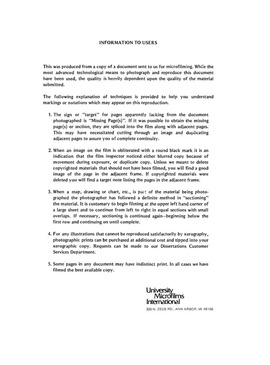| dc.contributor.author | Gens, Stephen Mark, | en_US |
| dc.date.accessioned | 2013-08-16T12:28:29Z | |
| dc.date.available | 2013-08-16T12:28:29Z | |
| dc.date.issued | 1982 | en_US |
| dc.identifier.uri | https://hdl.handle.net/11244/4953 | |
| dc.description.abstract | Most socialists believed only a democratic socialist party could translate their theories into reality. The World War II SP tried repeatedly to expand its base of political support through alliance, sometimes for specific reasons, and sometimes with the goal of a new leftist third party in mind. | en_US |
| dc.description.abstract | The socialist reaction to the coming of World War II is best explained as theory formulated within increasingly narrow boundaries, between bolshevism on the left and fascism (and its unwilling ally, liberalism) on the right, between impotent political sectarianism on the left and amoral power-hungry collaborationism on the right. The party reacted as it did because it believed the experiences of other radical groups in America and abroad demonstrated alternative social theories to be dangerous. Only a unique blend of political and economic democracy could promise what socialists sought, peace, plenty and freedom. | en_US |
| dc.description.abstract | Throughout the study runs a subplot of the SP's growing antipathy toward the Soviet Union and the American Communist Party. This anti-communism is indicative of the growing cold war mentality which permeated all strata of American society after the war. In this area, as in many others, the SP was in the vanguard, and was among the first groups to cry foul at Stalin's postwar adventurism. | en_US |
| dc.description.abstract | This study examines the reaction of the members of the Socialist Party of America (SP) to the events of the World War II era, 1939-48. Its basic thrust is to explain and understand the party's policy decisions, especially the reasoning behind them. Norman Thomas's role as party leader and sometime theoretician was pivotal. Hence his prominence in the work. | en_US |
| dc.format.extent | iv, 298 leaves ; | en_US |
| dc.subject | History, United States. | en_US |
| dc.title | Paranoia bordering on resignation : | en_US |
| dc.type | Thesis | en_US |
| dc.thesis.degree | Ph.D. | en_US |
| dc.thesis.degreeDiscipline | Department of History | en_US |
| dc.note | Source: Dissertation Abstracts International, Volume: 43-02, Section: A, page: 0524. | en_US |
| ou.identifier | (UMI)AAI8215787 | en_US |
| ou.group | College of Arts and Sciences::Department of History | |
